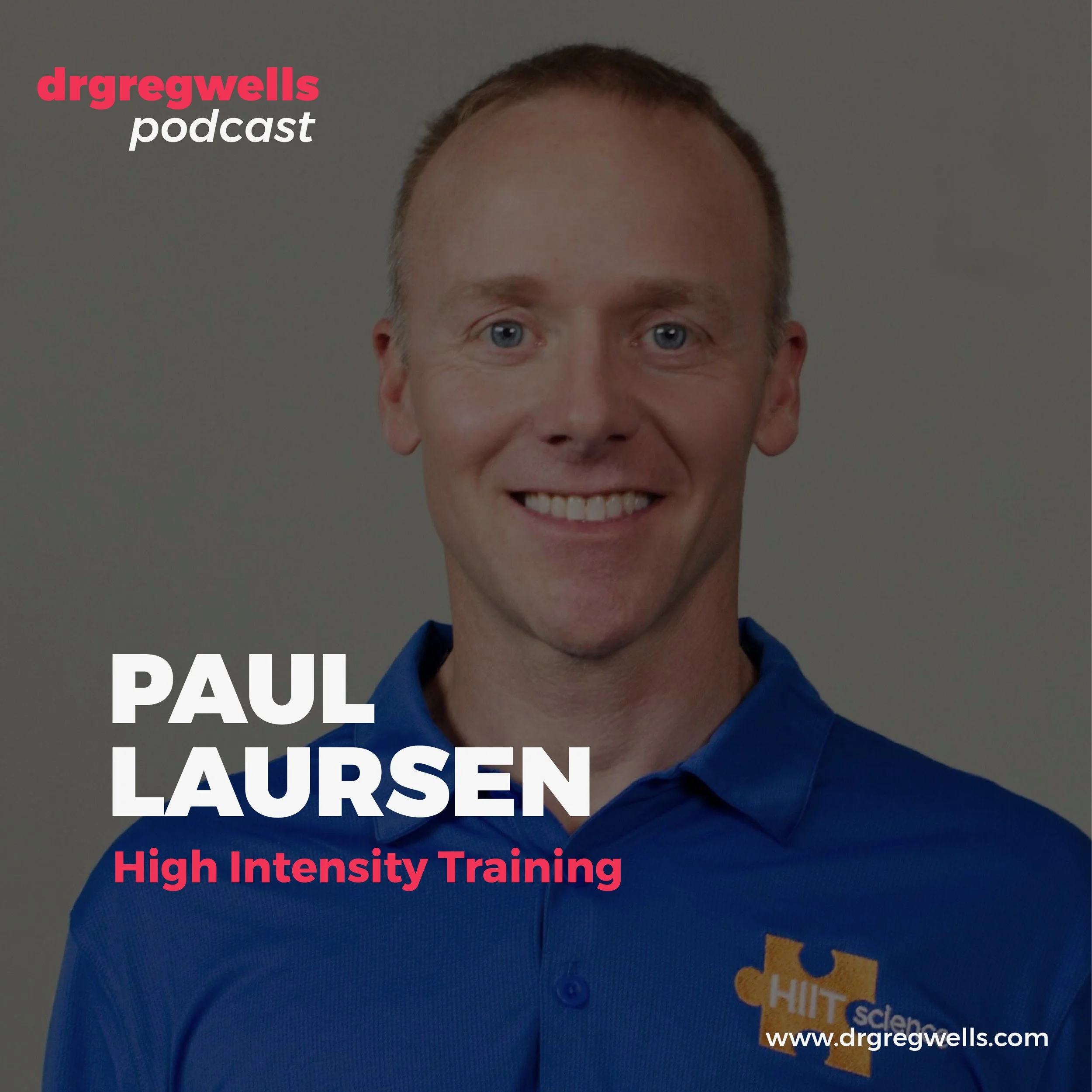
#50 - HIIT, Fat Adaptation & Smarter Endurance with Dr. Paul Laursen
In today’s conversation Paul Laursen explores how to program high-intensity interval training by putting context before content, so sessions match a person’s sport, goals, and physiology. He and Dr. Wells break down when to use short vs. long intervals, why recovery choice (passive vs. active) changes what your muscles can do next, and how to monitor readiness with simple cues and HRV. They also dig into endurance nutrition, including fat-adapted approaches for long events and why “being a nutrivore” matters more than labels. Paul closes with Athletica.ai’s mission—making adaptive endurance plans practical for real life.
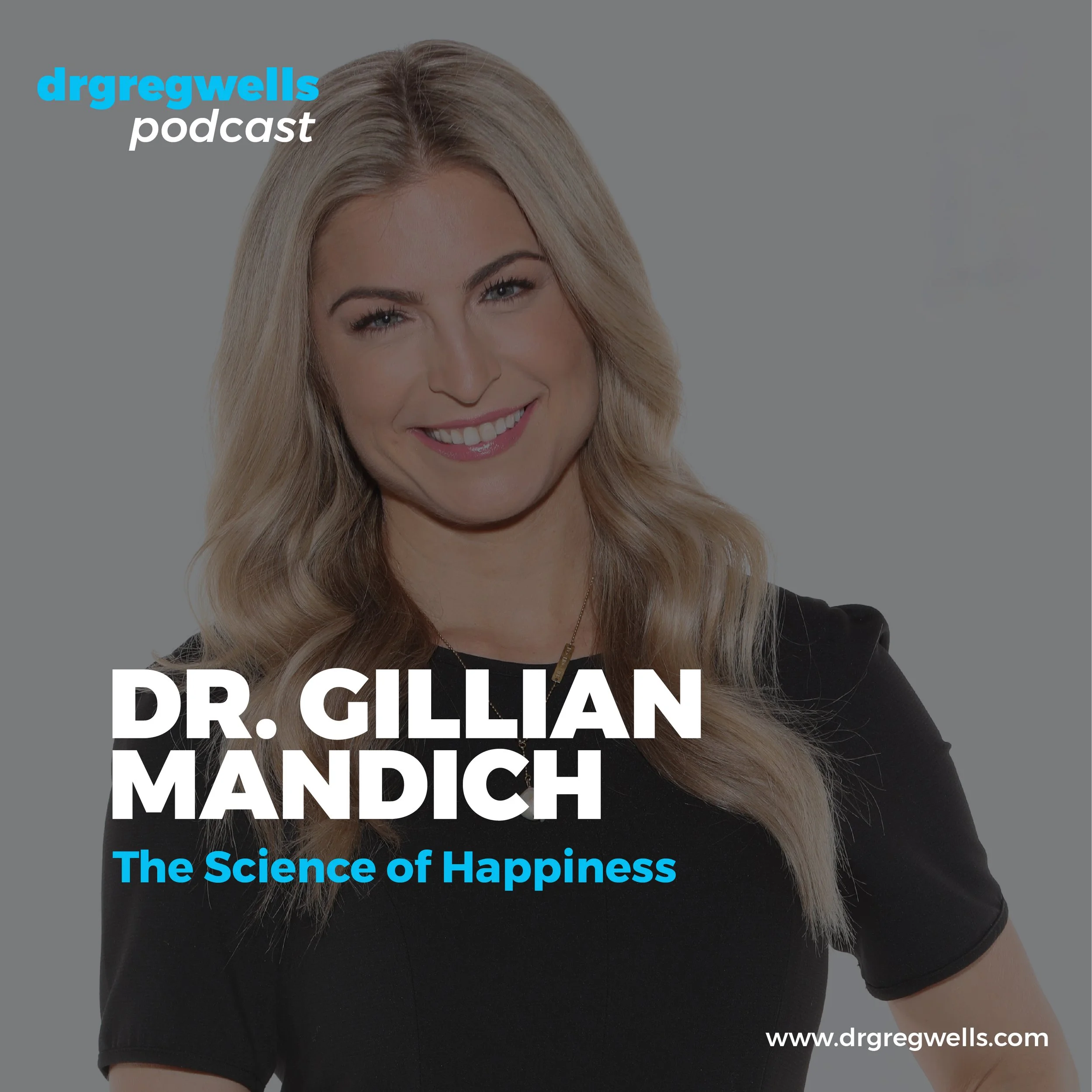
#49 - Small Joys, Big Results: Dr. Gillian Mandich on Practicing Happiness
In today’s conversation Gillian Mandich explores why the goal isn’t to be happy all the time and how happiness and sadness are separate—often co-existing—experiences. She explains how autonomy and intentional habits raise our “happiness set point,” creating an upward spiral where both highs and lows trend higher over time. We unpack money myths (why buying time and experiences matters more than things), how smiles can shift brain chemistry, and why happiness spreads through social networks. You’ll leave with simple, research-backed ways to engineer small bursts of joy throughout your day.
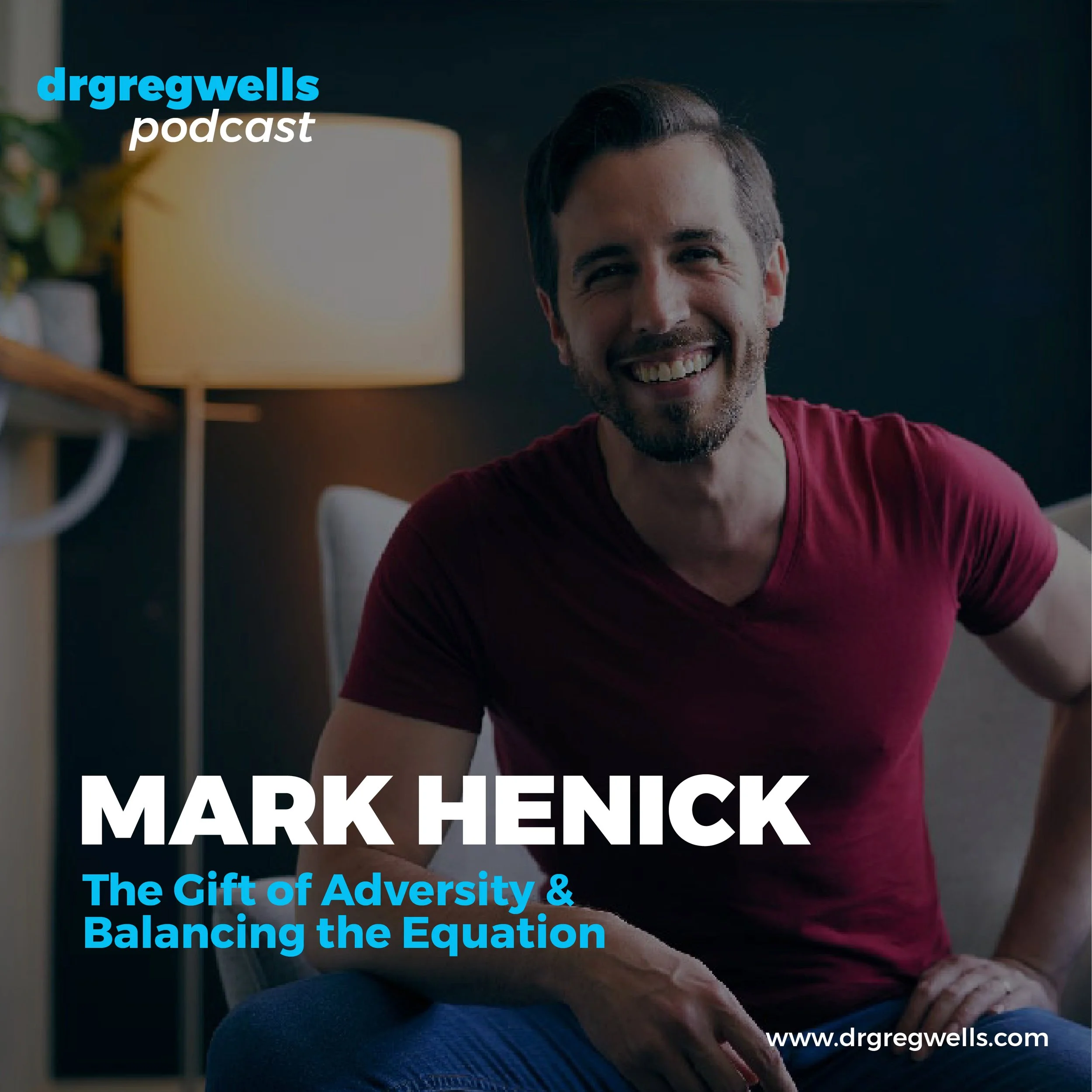
#48 - The Space Between: Mark Henick on Rewriting the Mental Health Script
In today’s conversation Mark Henick explores why resilience isn’t “never falling” but learning to fail well—and how that mindset carried him from adolescent depression and suicidality to rebuilding a purpose-driven life. He and Dr. Wells unpack radical acceptance, the discipline of creating space before you respond, and the role of contact-based education in reducing stigma. Mark shares concrete practices that helped him navigate job loss, grief, and parenting under pressure. The result is an honest playbook for mental fitness that’s equal parts compassion and execution.
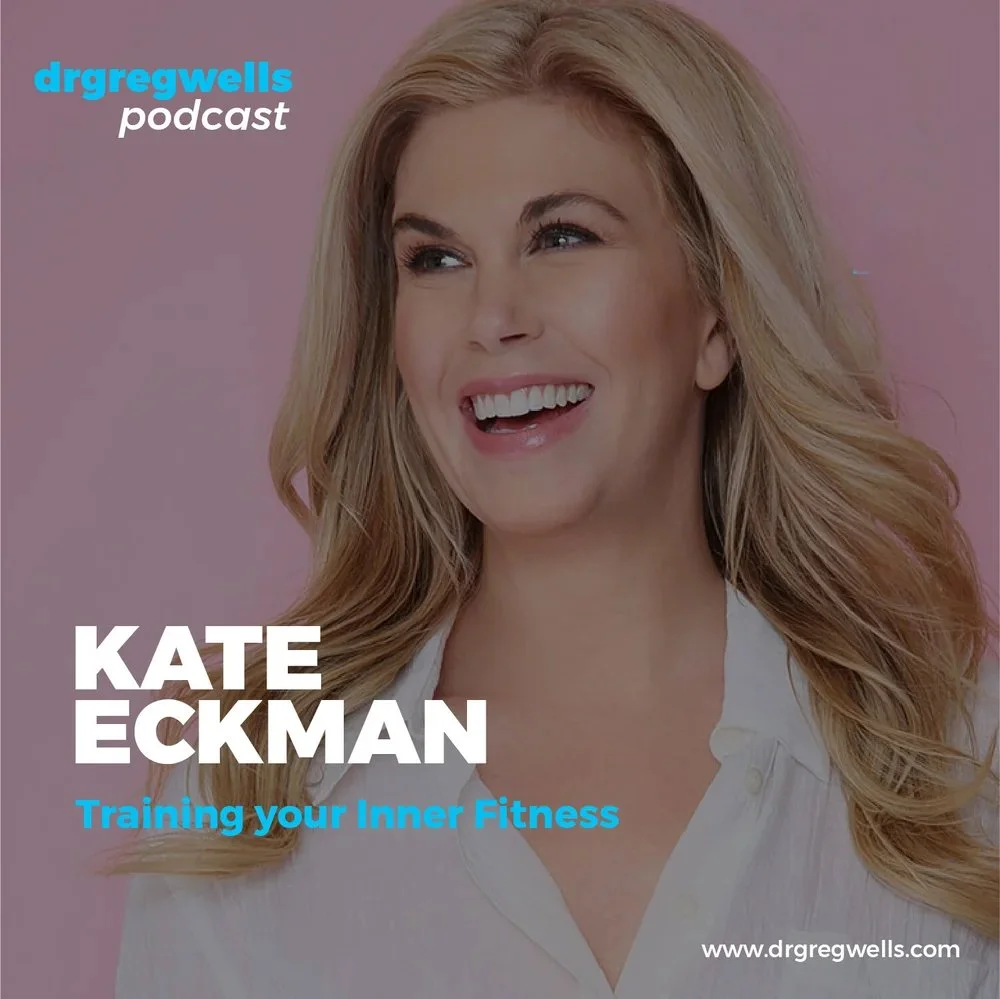
#47 - The Full Spirit Workout: Kate Eckman on Confidence, Presence & Letting Go
In today’s conversation Kate Eckman explores how to develop “inner fitness” with the same intention we bring to physical training. She shares her swimmer-to-broadcaster-to-coach journey, how early beliefs fueled achievement yet amplified anxiety, and why true confidence means trust—in your preparation, process, and timing. Kate unpacks her “Five Ps of Confidence” (presence, patience, purpose, preparation, practice) with two bonuses (pause, person), then describes “surrendering the outcome” so you can be all-in without gripping. The episode lands on practical rituals—journaling, stillness, breath, and values-driven action—that make composure repeatable.
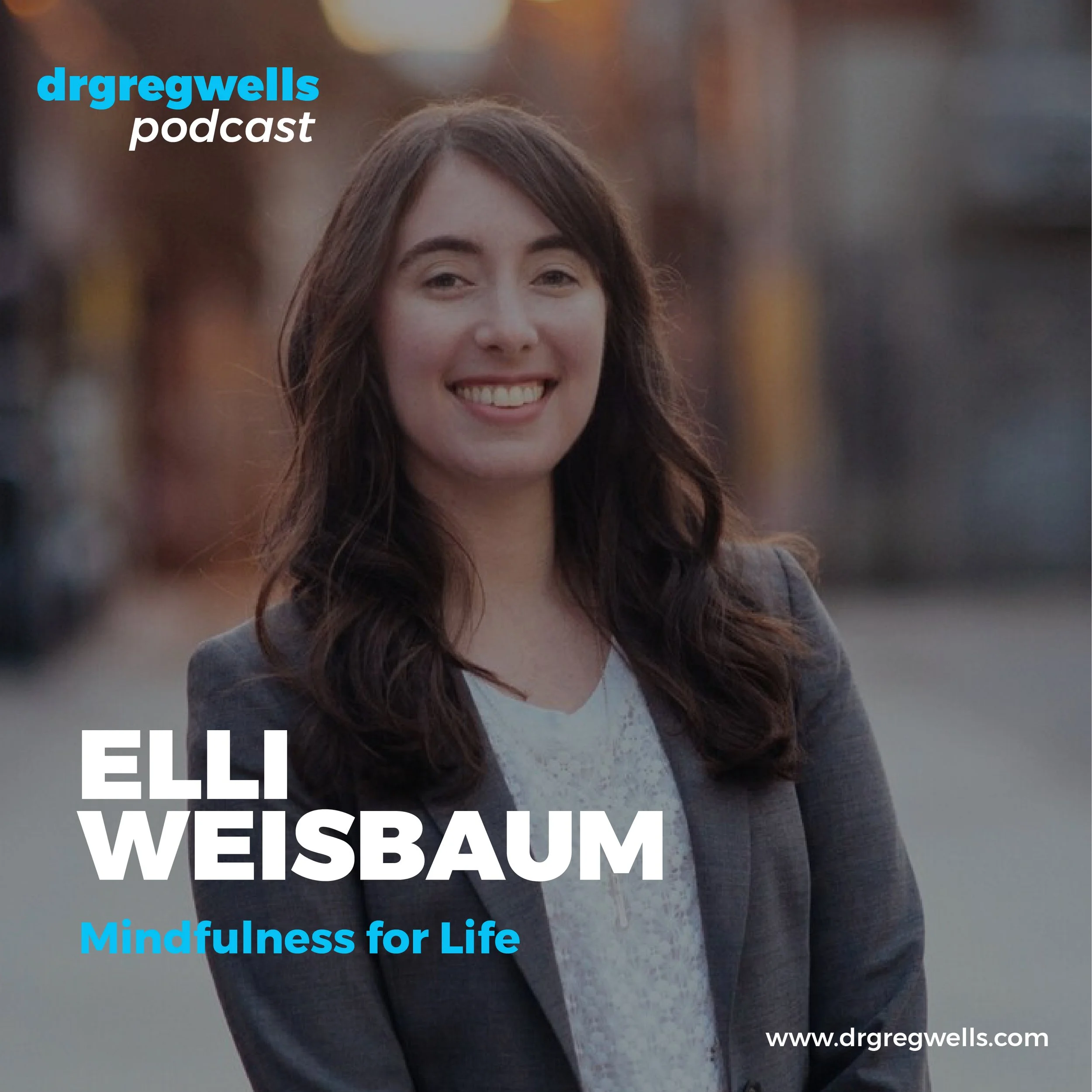
#46 - Mindful by Design: Training Attention, Flexibility & Kindness with Dr. Elli Weisbaum
In today’s conversation Elli Weisbaum explores how mindfulness builds cognitive flexibility and steadies the nervous system under everyday stress. She traces her path—from attending her first retreat with Thich Nhat Hanh at age ten to researching physician wellbeing—while unpacking the neuroscience of attention and the default mode network (the mind-wander system). You’ll hear practical ways to weave mindfulness into ordinary moments (email, commuting, brushing your teeth), plus how “awareness of awareness” upgrades focus, values clarity, and relationships. Together we connect these skills to leadership, healthcare, and family life with simple, repeatable practices.
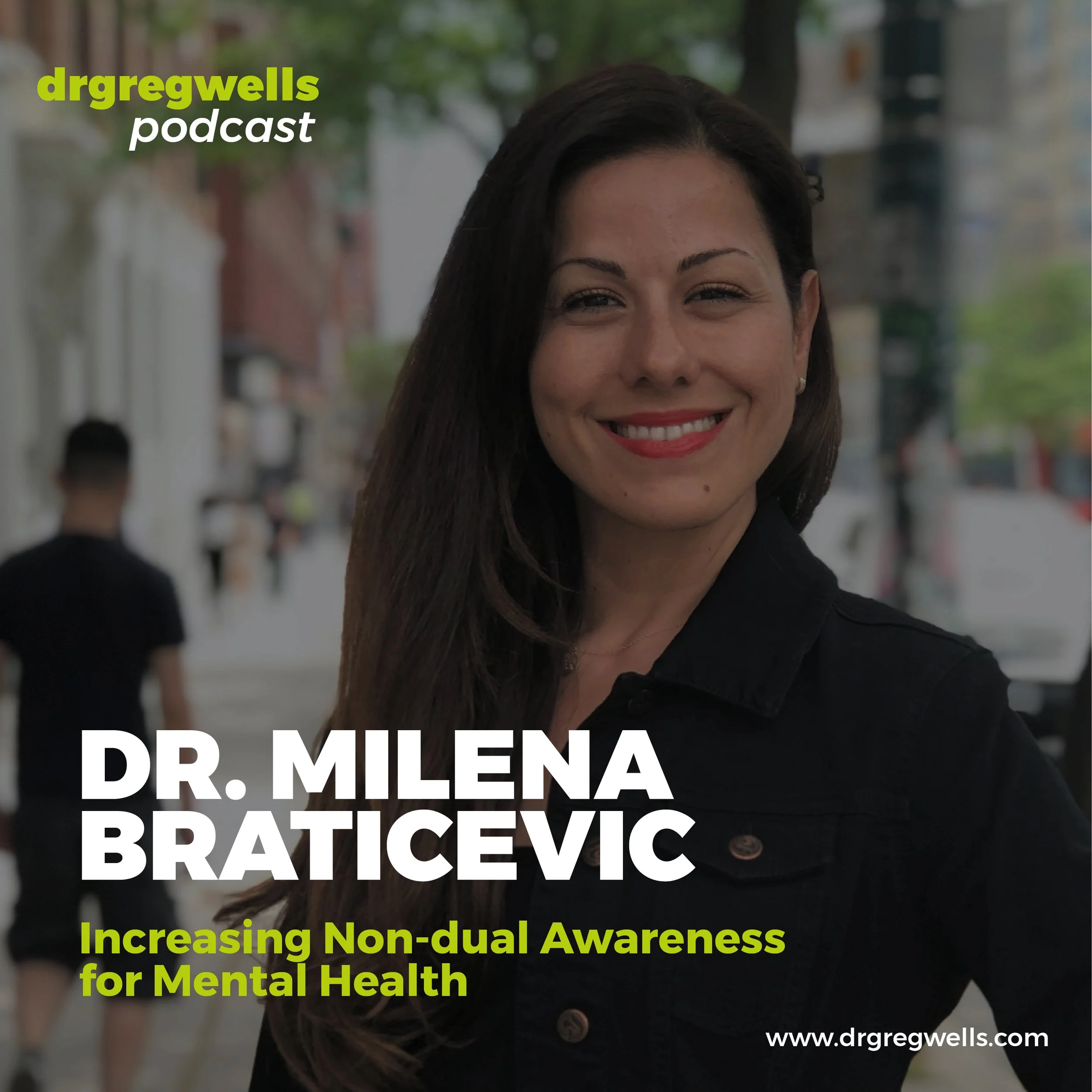
#45 - Beyond the Chatter: Nondual Awareness for Real-World Resilience with Dr. Braticevic
In today’s conversation Milena Braticevic explores how her path from tech entrepreneur through clinical depression to a PhD in Integral Health reshaped her understanding of the mind. She explains the default mode network—the inner story machine—and why training attention, journaling, and emotion regulation interrupt rumination. She lays out nondual awareness as a practical paradigm shift: experiencing reality more directly, strengthening belonging, and working with nature rather than against it. Together you connect these ideas to heart-rate variability, growth mindset under uncertainty, and daily rituals that restore energy and clarity.
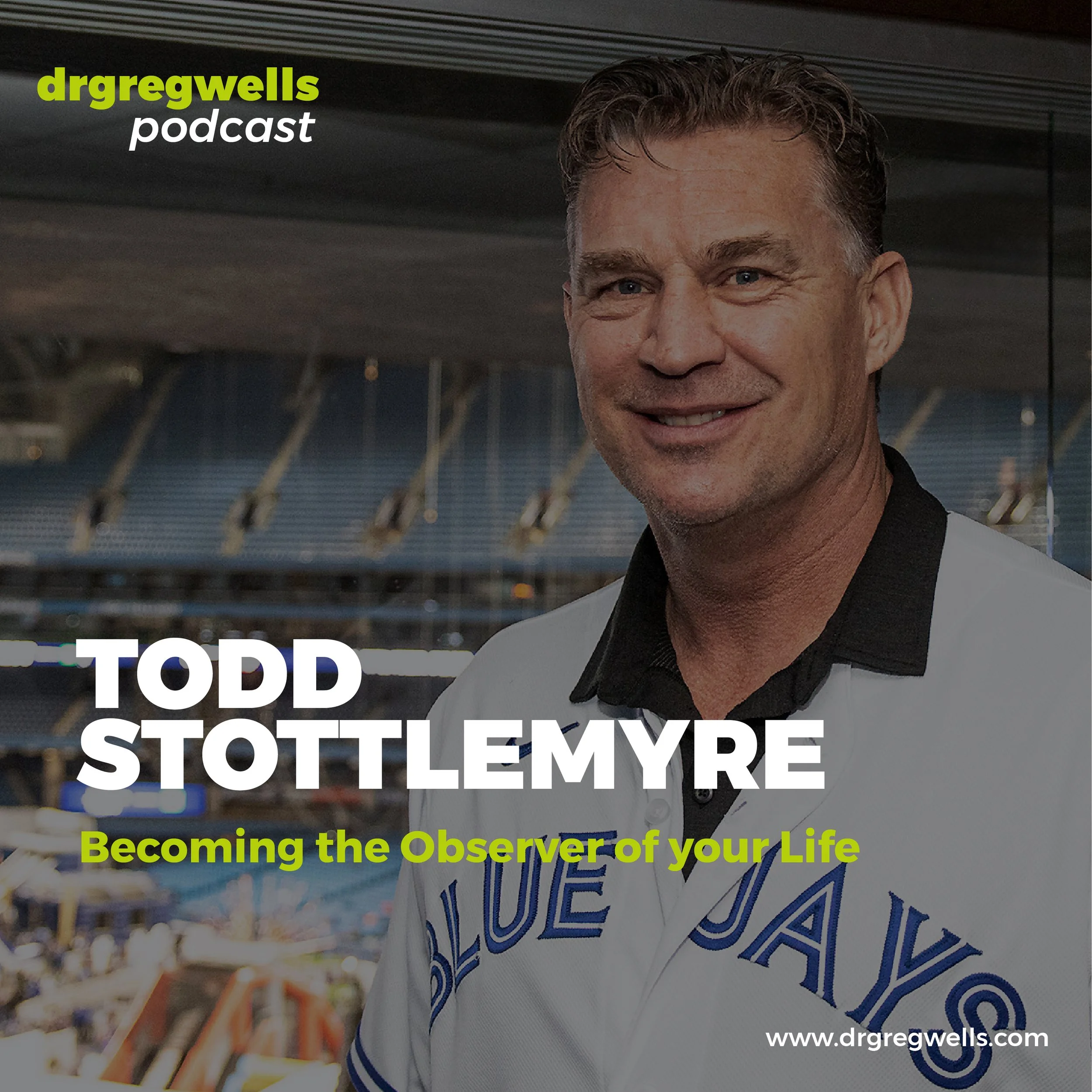
#44 - The Observer Effect: Mastering Thoughts, Emotions & Performance with Todd Stottlemyre
In today’s conversation Todd Stottlemyre explores what it really takes to win—first in your head, then on the field and in life. He shares formative lessons from growing up around the Yankees, the identity-shaking lows of being sent to the minors, and the all-in decision that saved his MLB career. Todd opens up about the loss of his younger brother, the burden of self-blame, and the breakthrough that came from learning to observe thoughts and emotions rather than react to them. We connect those practices to everyday performance—journaling, movement, and presence—so listeners leave with a clear playbook to change their inner game.
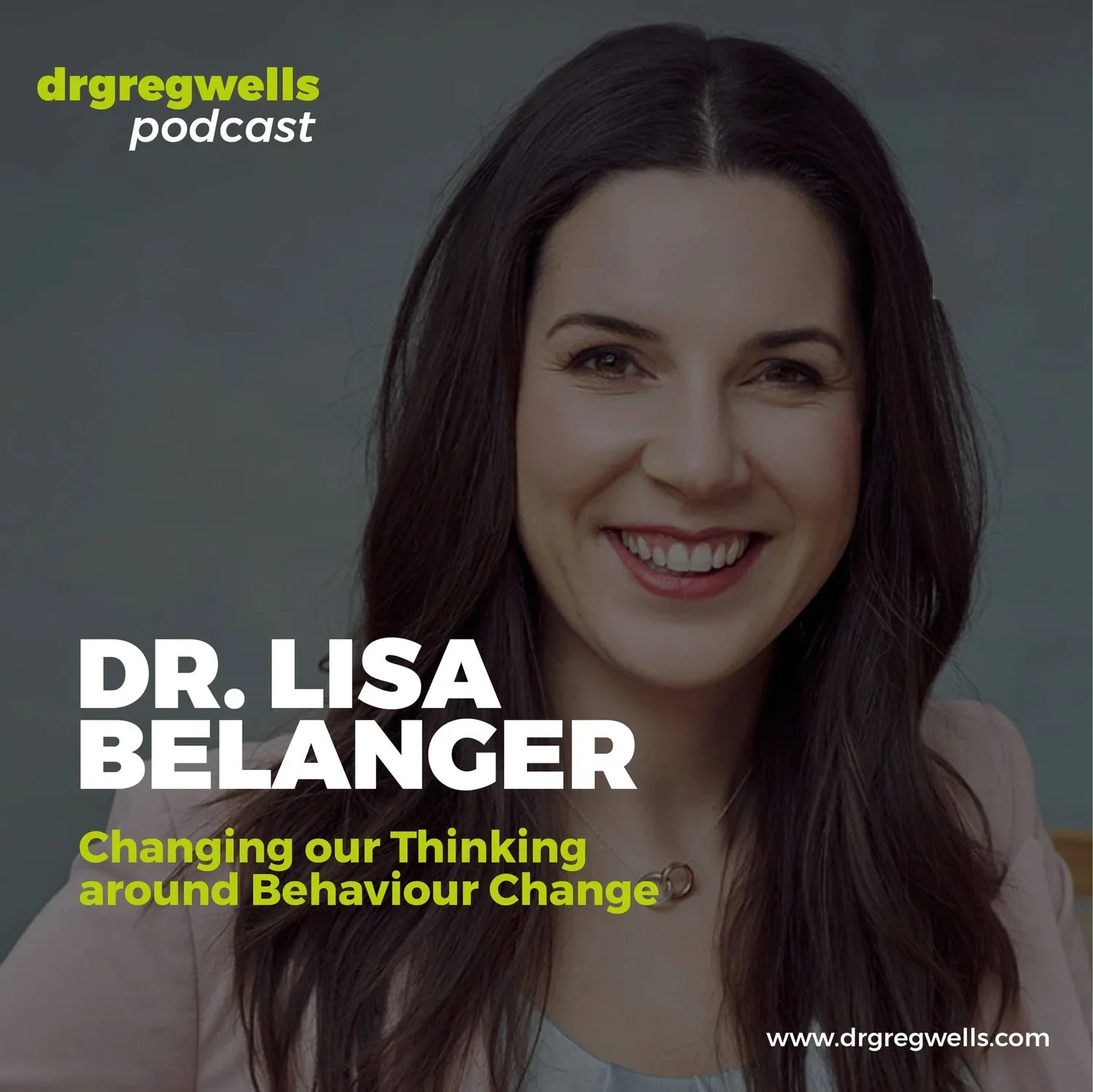
#43 - Work Better, Rest Better: Dr. Lisa Bélanger on Tiny Habits for Big Performance
In today’s conversation Lisa Bélanger explores how to design days that reliably produce focus, energy, and calm—especially in uncertainty. She and Dr. Wells unpack why behavior change fails when it relies on motivation alone, and how to use “make it easy and attractive” design to make the right choice the default. They dig into exercise as first-line therapy for cancer-related fatigue, what nature does to the brain during recovery, and how “doormat” rituals separate work from home when boundaries blur. Expect practical micro-habits grounded in psychology, neuroscience, and behavioral medicine.
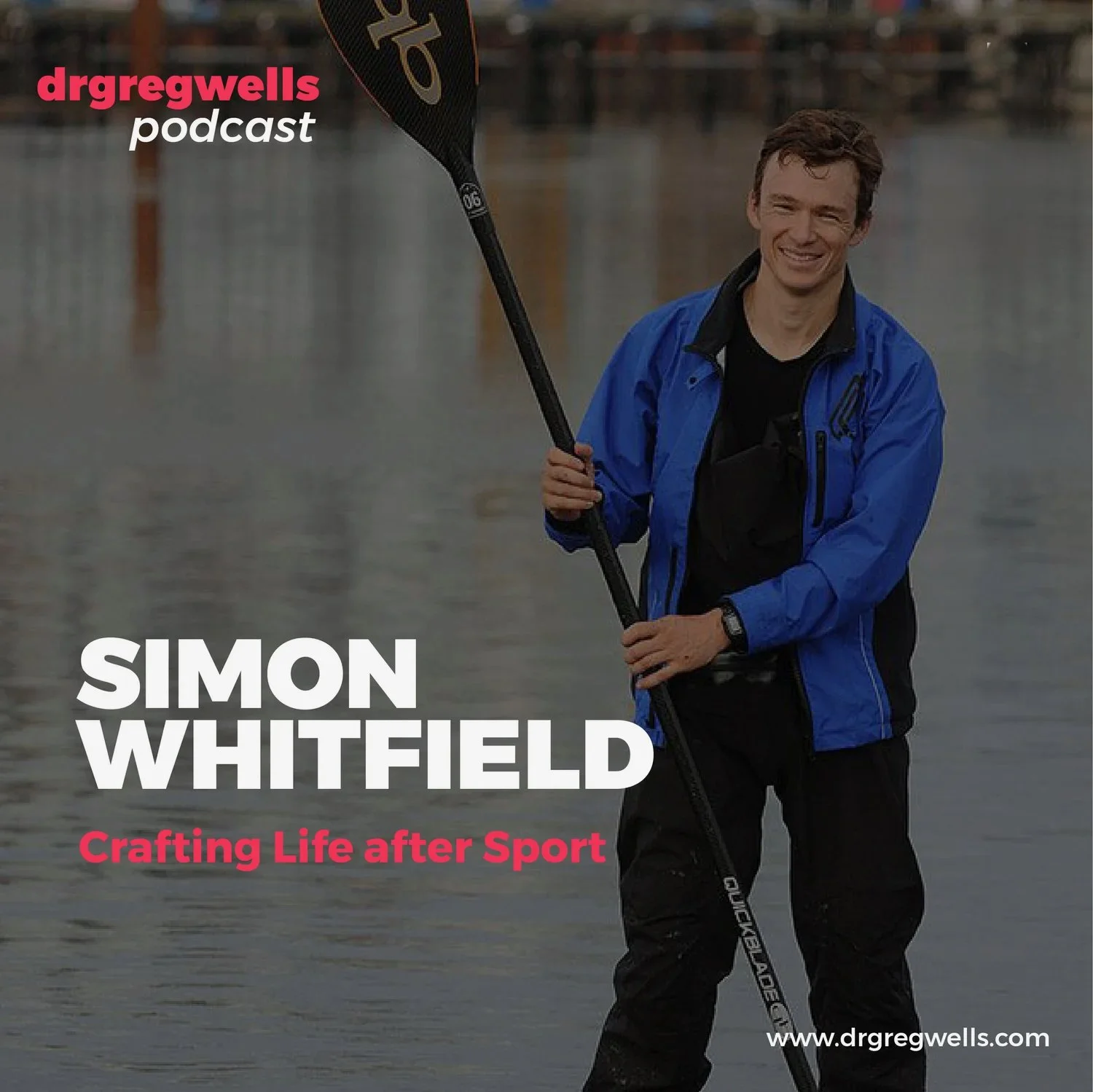
#42 - “Imagine If”: Simon Whitfield on Mastery, Visualization & Joy
In today’s conversation Simon Whitfield explores the mindset behind his Sydney 2000 Olympic gold and Beijing 2008 silver, and how visualization, breath control, and teamwork shaped those races. He shares the “imagine if” habit from his training log, the deliberate use of a domestique strategy in 2008, and the “do-nothing defense” for regaining composure in decisive moments. Simon opens up about the costs of fame, the post-career identity pivot, and why rebuilding around nature—specifically time on the ocean—restored his presence with family and joy in daily life. The result is a practical blueprint for anyone navigating pressure, change, or reinvention.
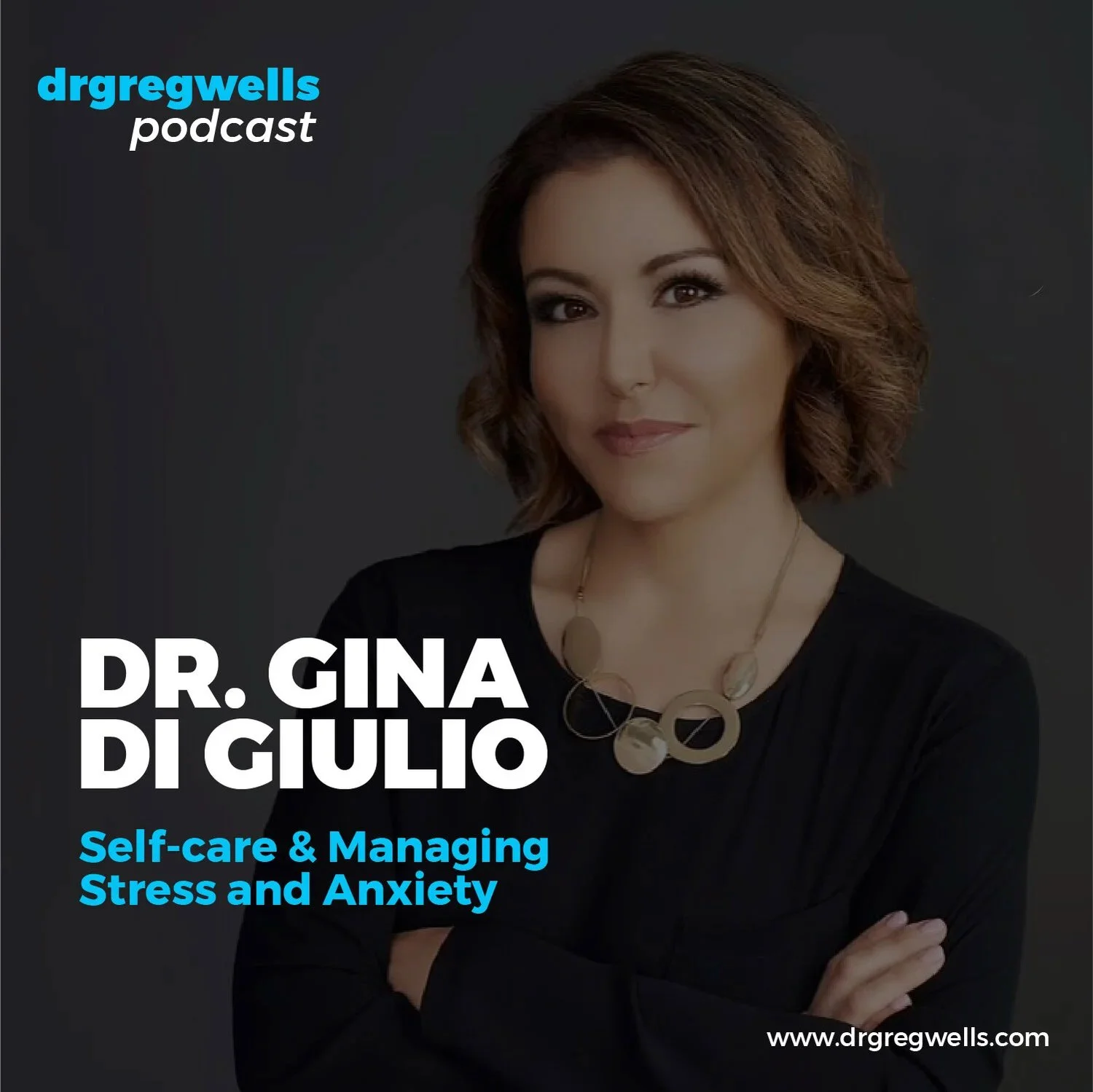
#41 - No Health Without Mental Health: Dr. Gina Di Giulio on Practical Mental Health
In today’s conversation Gina Di Giulio explores why “there is no health without mental health,” and how to cut through confusion to get high-quality support quickly. She and Dr. Wells unpack practical strategies for coping with anxiety, protecting sleep, using exercise as “medicine,” limiting news exposure, and staying socially connected while physically distant. Gina explains her “action first” philosophy—take a small, controllable step to jump-start motivation—and shares how gratitude journaling and strengths-based psychology move people from neutral to flourishing. You’ll hear real-world, clinician-tested tactics that work for busy leaders, parents, and teams.
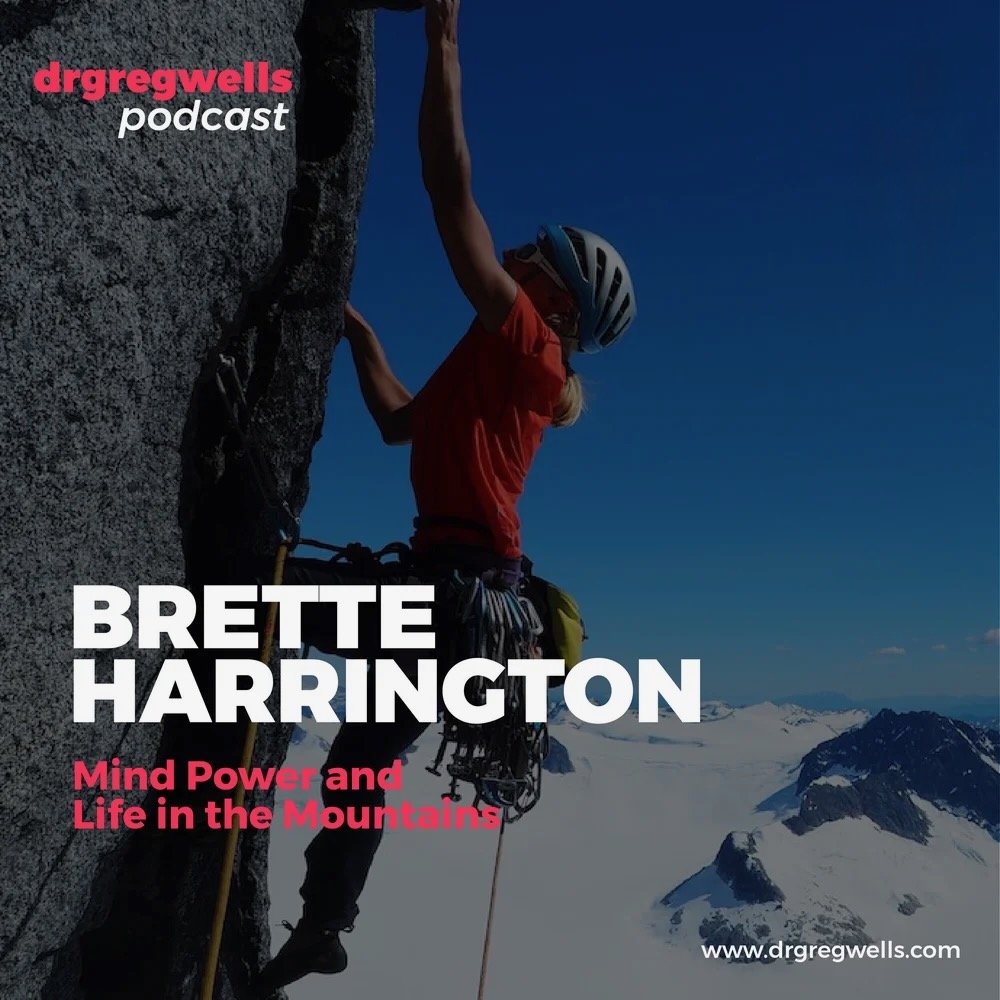
#40 - Grief, Risk and Freedom: Climber Brette Harrington on Fear, Loss & Flow
In today’s conversation Brette Harrington explores how a life built in the mountains has shaped her resilience, creativity, and sense of purpose. She shares her journey from skiing with her parents in Lake Tahoe to boarding school in New Hampshire, discovering rock climbing, and eventually becoming one of the world’s leading trad climbers, alpinists, and free soloists — including the first free solo of the 2,500-foot Chiaro di Luna (5.11a) in Patagonia. She and Dr. Wells talk through her serious ski accident and broken neck, the years of big-wall and alpine climbing with her partner Marc-André Leclerc, and the devastating avalanche that took his life in 2018. Brette explains why she chose to return to the mountains against others’ advice, how she now manages fear on big objectives, and why moving slowly, breathing deeply, and listening to her energy are non-negotiable for both safety and performance.
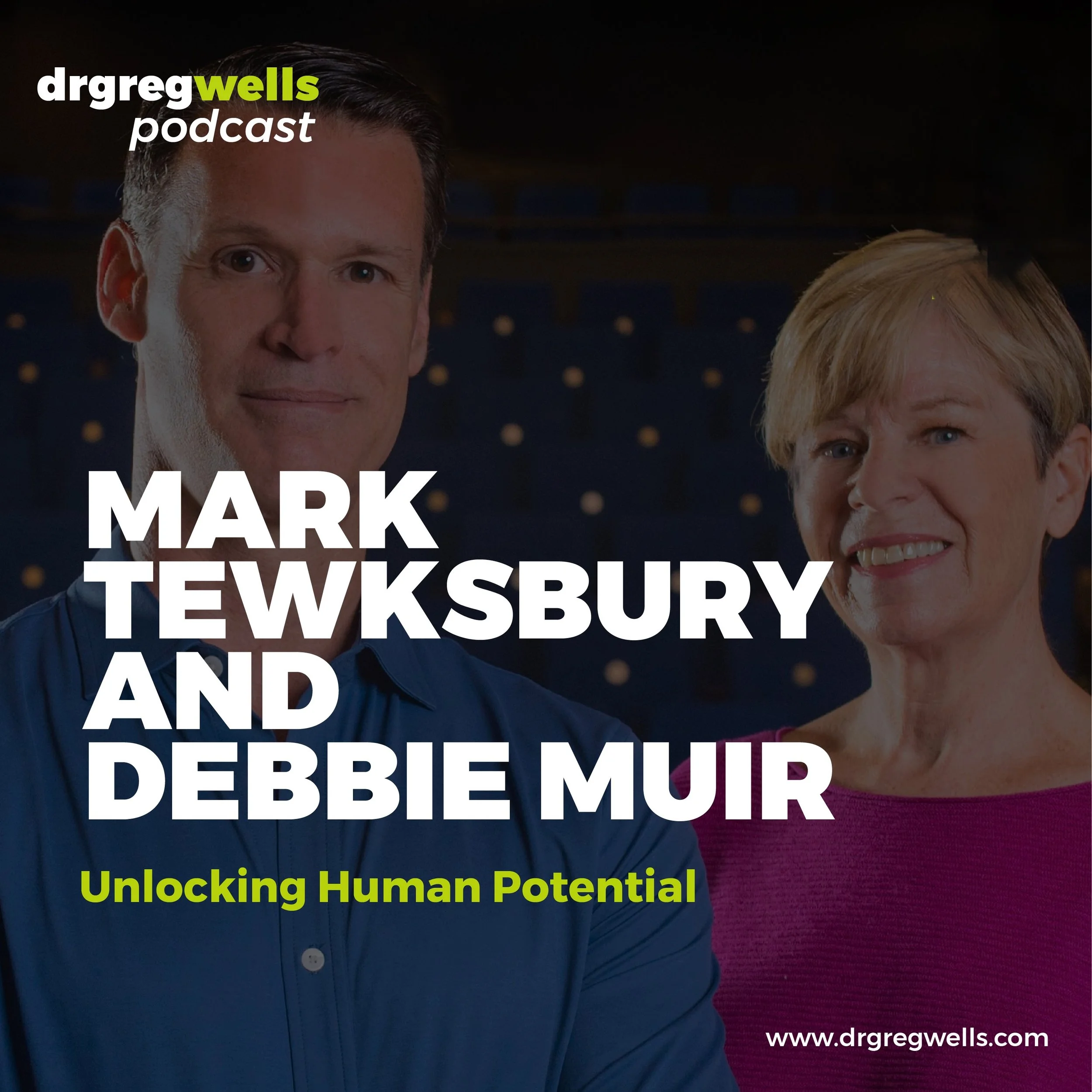
#39 - From Olympic Gold Medals to Great Traits: Mark Tewksbury & Debbie Muir on High-Performance Leadership
In today’s conversation Mark Tewksbury and Debbie Muir explore how an Olympic crisis turned into a blueprint for high-performance leadership. Mark shares the story of being “second best in the world” in the 100m backstroke, watching American rival Jeff Rouse blow the world record apart, and realizing he needed to find over a second of improvement in just ten months — the same improvement it had taken him seven years to earn. Debbie describes how she came out of retirement, brought her synchronized-swimming coaching genius across sports, and helped Mark rebuild his race from fundamentals: starts, turns, underwater dolphin kick, mental scripts, and the mind-body connection.
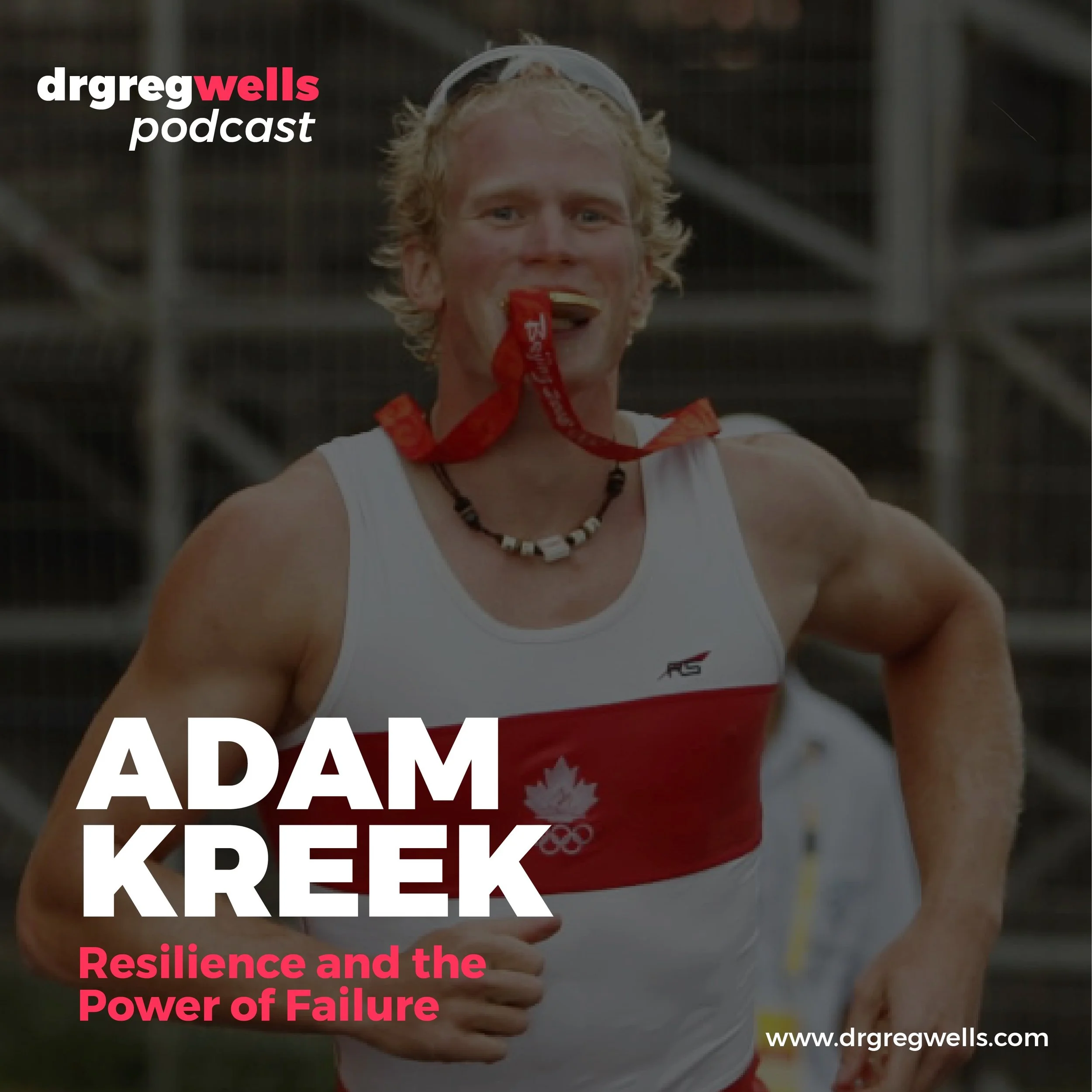
#38 - The Responsibility Ethic: Turning Pain into Performance with Adam Kreek
In today’s conversation Adam Kreek explores what it really takes to be “built for hard” in sport, work, and life. He walks through his origin story from an “average kid in an average town” to a world and Olympic champion in the men’s eight, including the high school coach who told him, “You’re an Olympian, you just don’t know it yet,” and why staying multi-sport and not going too hard too early built his durability.
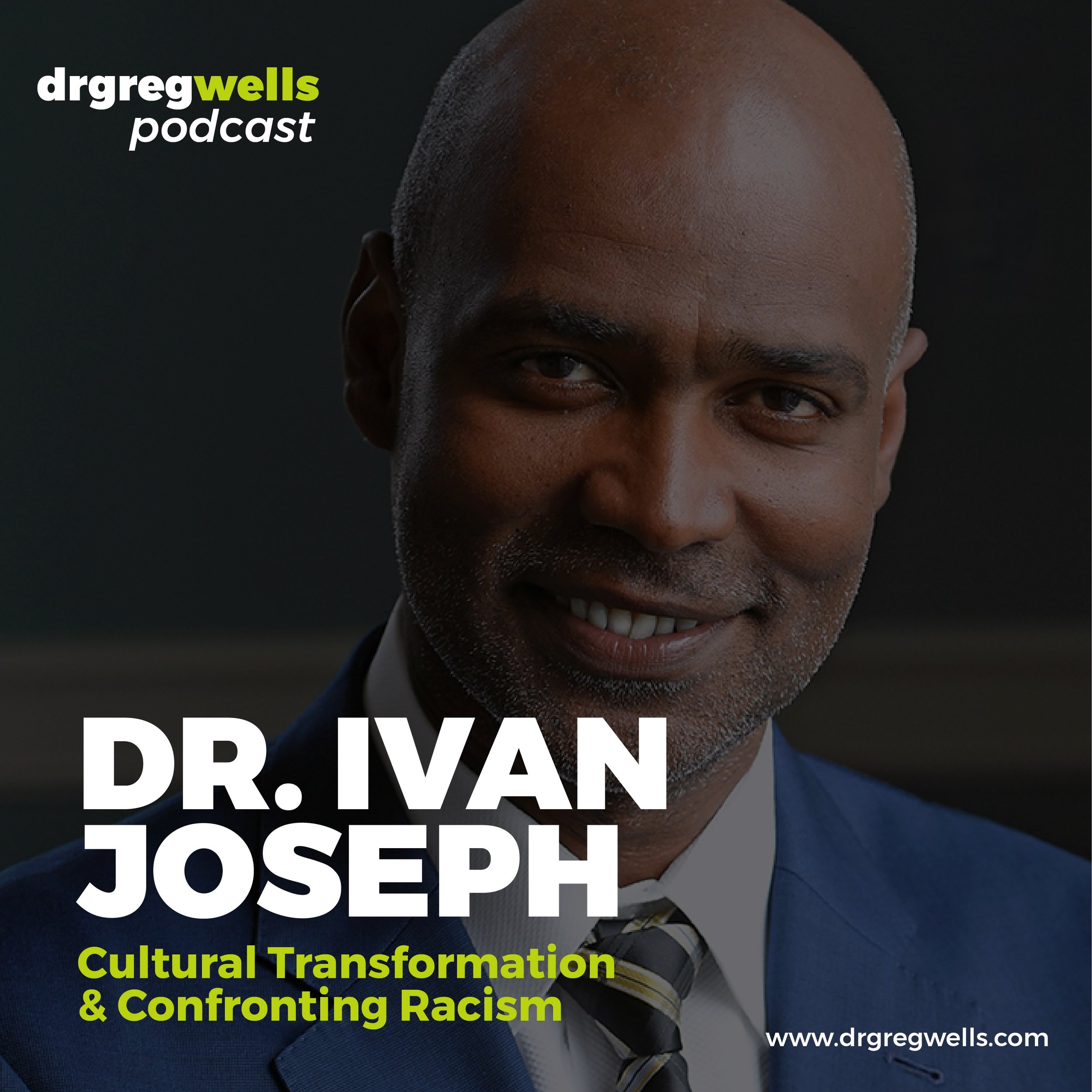
#37 - You Got This: Self-Confidence, Belonging & Aligned Actions with Dr. Ivan Joseph
In today’s conversation Ivan Joseph explores what it means to build genuine self-confidence and belonging in a world still shaped by systemic racism and bias. He shares his journey from growing up in Guyana and a tough Toronto neighbourhood to becoming a national championship coach, PhD sport psychologist, and university vice president—yet still hearing the “twice as good” mantra every Black kid knows. He and Dr. Wells dive into allyship, protests, and why performative, “tourist” activism isn’t enough; instead they talk about micro-behaviours, access to education, and the power of 1% changes that compound over years.
They finish by unpacking Ivan’s core work on self-confidence—self-talk, affirmations, gratitude letters, and his “You Got This” letter—and how those same tools help us stay in hard conversations about race, leadership, and change.
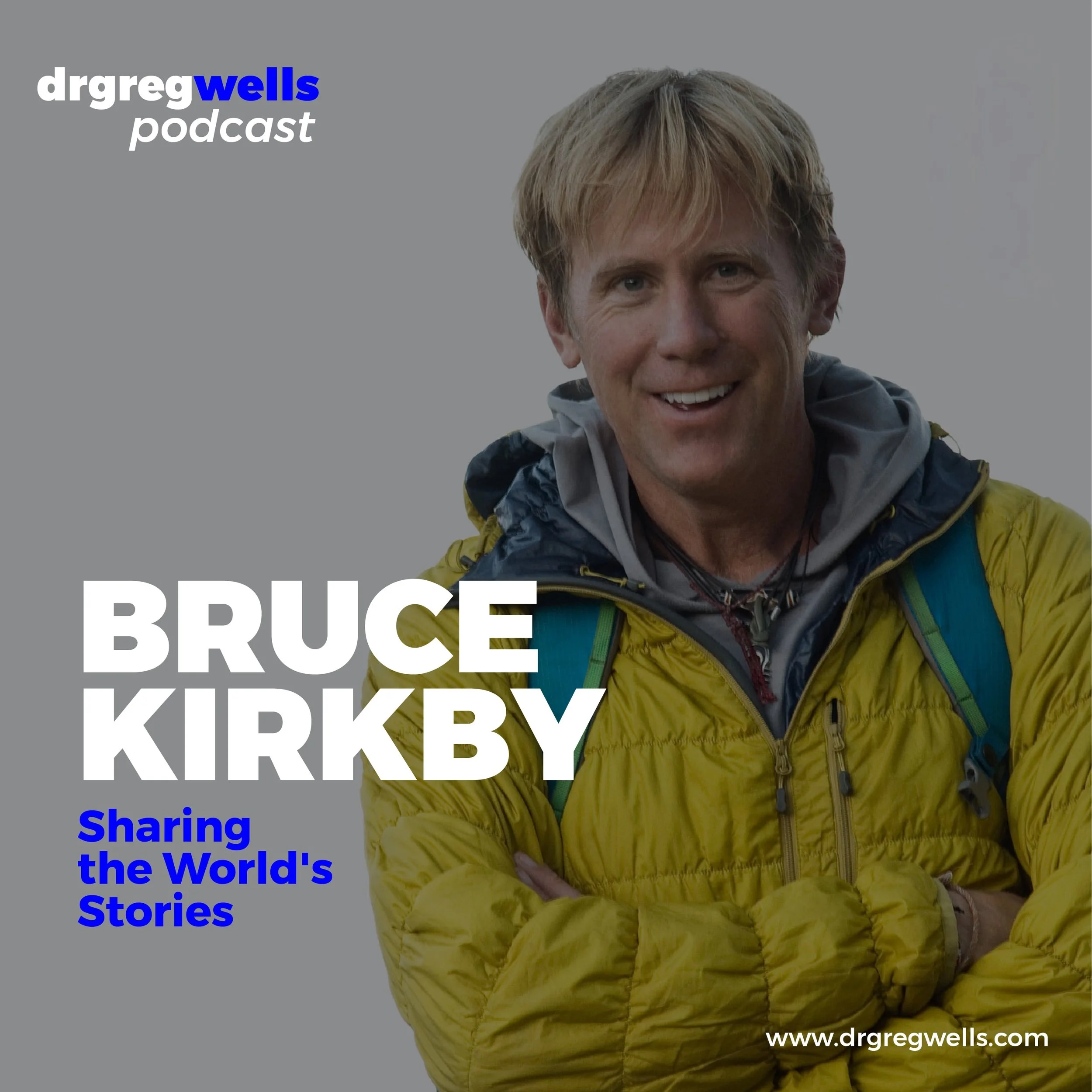
#36 - From Grit to Growth: Explorer Bruce Kirkby on Adventure, Family and Focus
In today’s conversation Bruce Kirkby explores what it really means to design a life around adventure, presence and growth instead of stress, traffic and endless grind. He shares how he walked away from a conventional career in engineering to become an expedition guide, writer and photographer, leading journeys across Arabia’s Empty Quarter, Ethiopia’s Blue Nile Gorge and remote mountain ranges around the world.
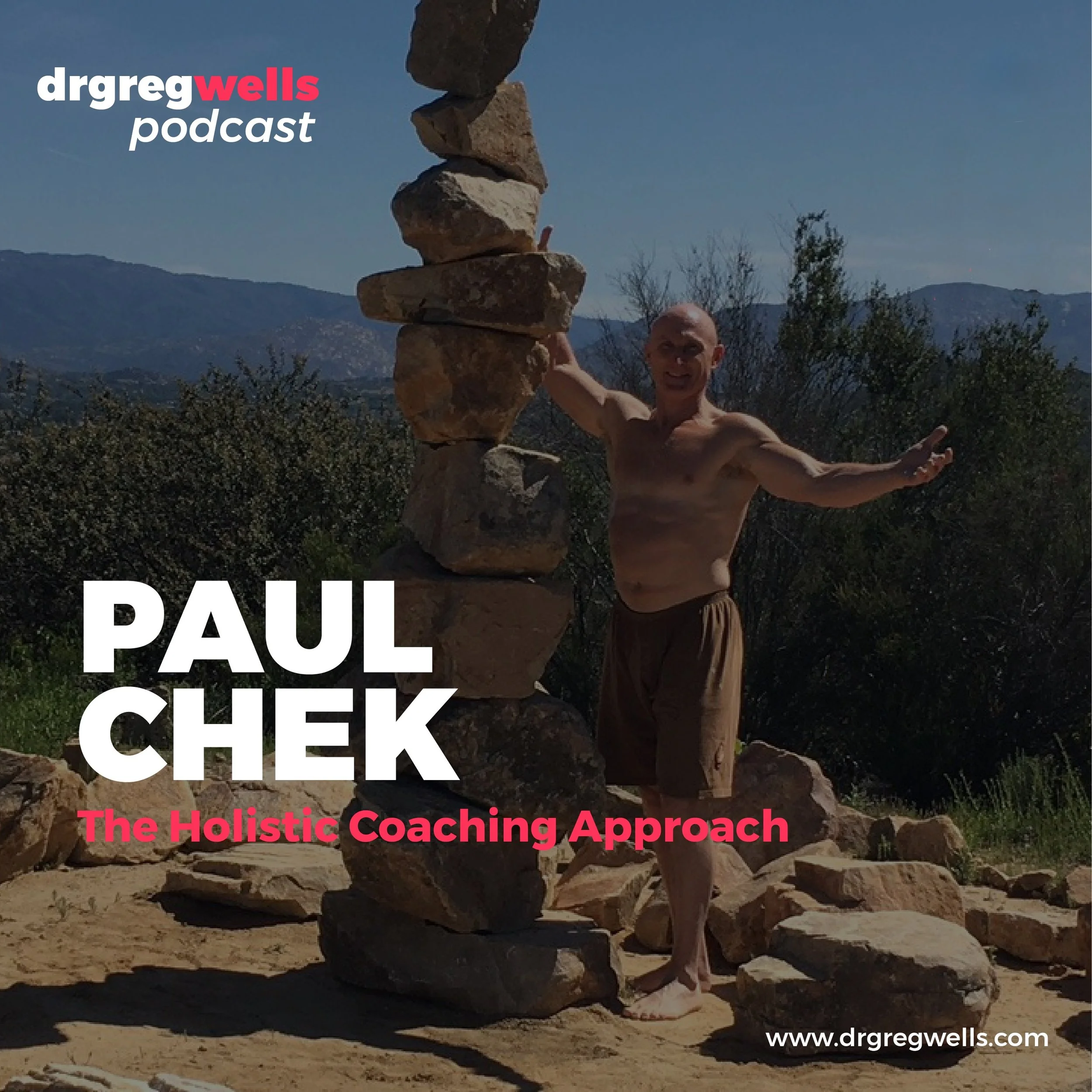
#35 - From Soil to Soul: Paul Chek on Truly Holistic Health
In today’s conversation Paul Chek explores his journey from growing up on an organic sheep farm with a yogi mother to training the U.S. Army boxing team, rehabbing “medical failures,” and ultimately founding the CHEK Institute. He explains why understanding living soil, organic farming, and vitamin complexes is essential for real nutrition, and how commercial agriculture leaves both food and humans energetically depleted. Paul and Dr. Wells dive into breathing mechanics, “working in” versus “working out,” and how most people’s chest-dominant, rapid breath keeps them stuck in fight-or-flight. They finish by unpacking his 1-2-3-4 framework, the “Last 4 Doctors You’ll Ever Need,” and his Four Quadrant coaching model that links beliefs, relationships, body, and environment into one coherent map for healing and performance.

#34 - Every Moment Matters: Tommy Fleetwood on Confidence, Consistency & Energy
In today’s conversation Tommy Fleetwood explores what it really takes to come back from a slump and turn talent into long-term consistency at the very top of professional golf. He shares the story of rising quickly as a young pro, losing his way technically and mentally, and then rebuilding by returning to a childhood coach, bringing a close friend in as his caddie, and
assembling a trusted performance team. Tommy and Dr. Wells unpack how confidence actually works, why “every moment matters,” and how journaling, visualization, and brutally honest stats help him lift his baseline on and off the course. They finish by exploring how to protect energy while traveling, build daily routines around what matters most, and stay anchored in the present when the stakes are highest.
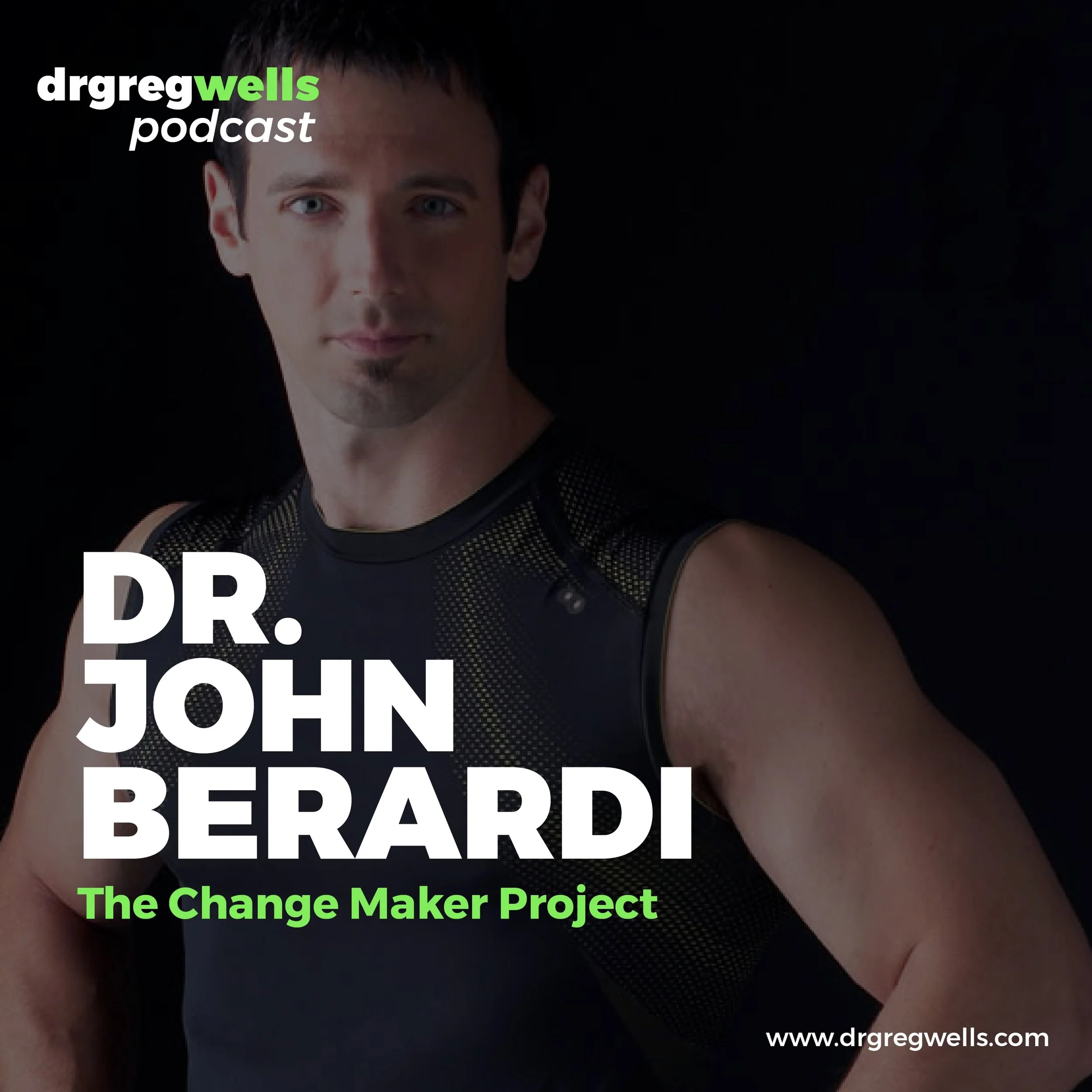
#33 - Change Maker: Dr. John Berardi on Building Health, Habits, and Real Change
In today’s conversation John Berardi explores how real change in health, performance, and career actually happens over years of “always something” rather than bursts of all-or-nothing effort. He walks through his journey from immigrant-kid pressure to “be a doctor,” into graduate research in exercise physiology and nutritional biochemistry, and then on to co-founding Precision Nutrition and coaching hundreds of thousands of clients and professionals. John and Dr. Wells dig into what separates successful athletes and everyday clients, why simple limiting-factor fixes often beat complex named diets, and why game-day nutrition matters far less than what you do for weeks and months beforehand. They finish by unpacking his Change Maker framework for health and fitness professionals—clarifying purpose, building T-shaped skills, and using feedback to craft a meaningful, sustainable career.
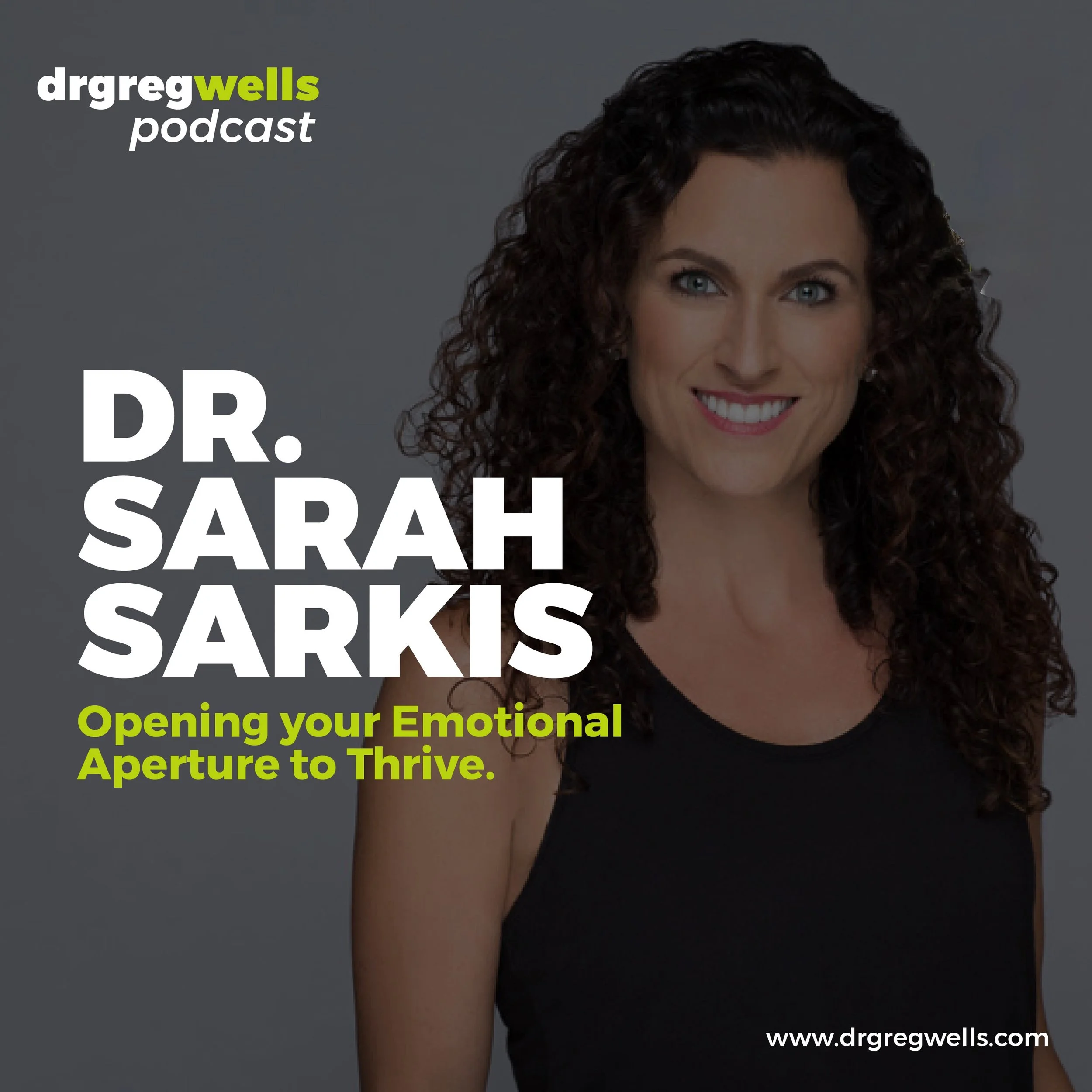
#32 - Time Under Tension: Dr. Sarah Sarkis on The Psychology of Thriving
In today’s conversation Sarah Sarkis explores what it really means to thrive psychologically, beyond the clichés of “just be positive.” She traces her journey from forensic psychology to performance consulting and explains why she’s “not in the business of happiness, but of self-awareness and change.” She and Dr. Wells unpack emotional “time under tension,” the power of developing an observing ego, the damage of abusive self-talk, and how our thoughts shape neurochemistry and even gene expression over time. They finish by diving into flow states, the struggle–release–flow–recovery cycle, and practical ways to design your day so presence and flow are more likely to show up—at work, in sport, and at home.
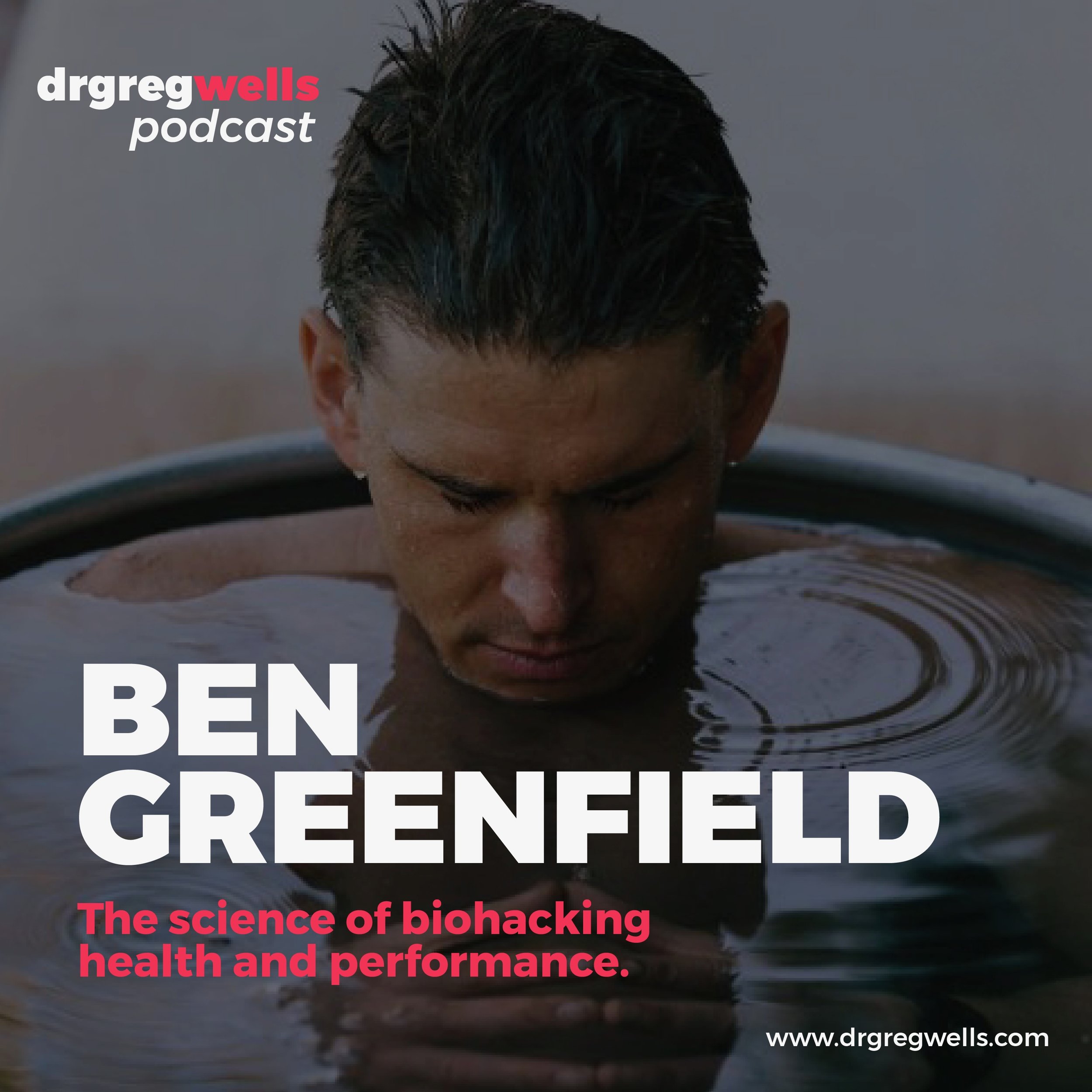
#31 - Beyond Training: Ben Greenfield on Training, Creativity & Longevity
In today’s conversation Ben Greenfield explores how to train, work, and live “beyond training” by aligning your physiology with your goals. He walks through his hot–cold morning ritual, deep-work habits, and the science behind doing easy movement early in the day and intense workouts later when the body is primed to perform. He then maps out a “perfect week” of exercise that builds mitochondria, VO₂max, lactic-acid tolerance, strength, and stamina without tipping into overtraining. Finally, Ben and Dr. Wells dive into nutrition, genetics, blood sugar control, and the importance of cultivating creativity and meaning—not just muscles—for a truly boundless life.
